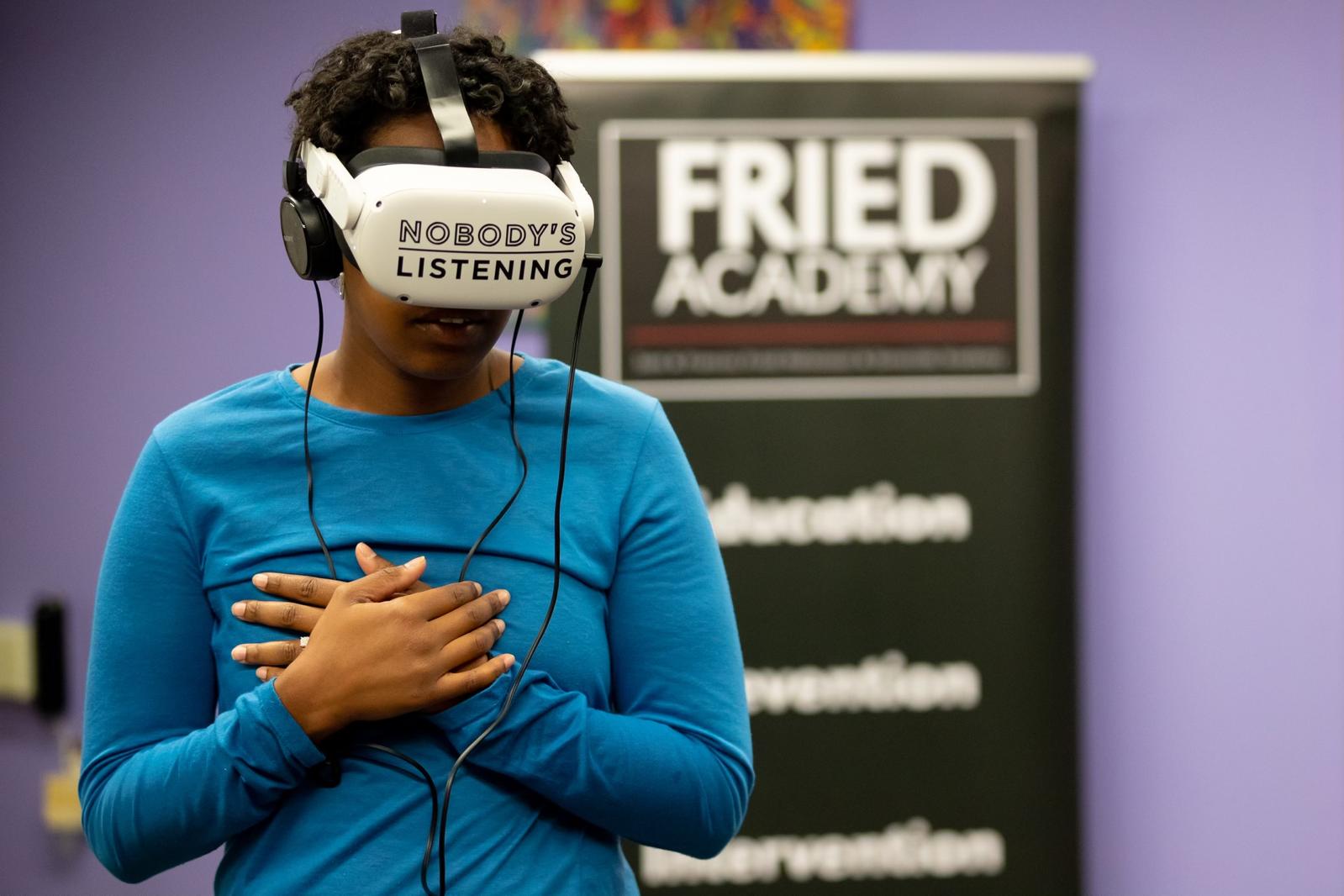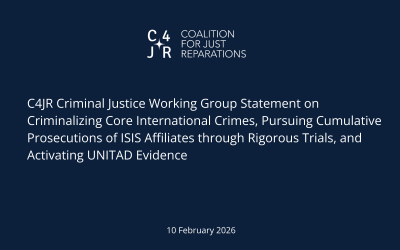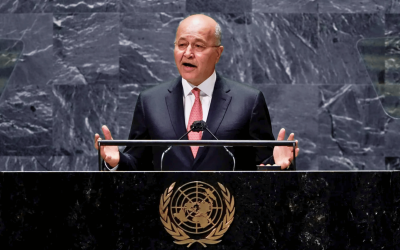Ryan X. D’Souza and Dr. Alexander M. Gross
Nobody’s Listening is uniquely positioned to engage the next generation of leaders in global dialogues about human rights, genocide prevention, and extremism. This initiative, through its innovative use of virtual reality and art, seeks to ensure that the stories of the Yazidi people are heard and that concrete steps are taken towards justice and prevention. https://www.nobodys-listening.com
The 3rd August this year marks the tenth anniversary of the Yazidi genocide perpetrated by ISIS in northern Iraq, and there is an urgent need for action if the suffering of the victims and survivors is not to be forgotten due to a lack of international recognition and diminishing prospects for justice. What is more, the ongoing conflict in Israel and the Occupied Palestinian Territories is further destabilizing the region, heightening the risk of a resurgence by ISIL and a recurrence of atrocities. Recent attacks by Iranian-backed militias have contributed to a palpable sense of hopelessness among communities in northern Iraq who feel that their voices are not being heard.
An award-winning touring exhibition entitled Nobody’s Listening uses virtual reality (VR) technology and visual art to amplify these people’s calls for justice and inspire political action to prevent future atrocities.
The Yazidi Genocide
In August 2014 ISIL forces launched an offensive in the Sinjar district, the ancient home of the Yazidi ethnoreligious group. The genocidal intent underlying the violations and public utterances of ISIL is also evident in the terrorists’ systematic destruction of Yazidi religious and cultural heritage sites. As determined by both a United Nations Commission of Inquiry and the US Holocaust Memorial Museum, ISIL committed genocide in its multi-faceted attacks on the Yazidis, whose suffering is ongoing. However, later this year the United Nations Security Council will terminate the mandate of UNITAD, the special taskforce to promote accountability for crimes committed by ISIL, at the request of the Government of Iraq. Such developments reinforce the survivors’ belief that they have not been heard and will be forgotten in future.
The Role of Nobody’s Listening
Nobody’s Listening aims to amplify their calls for justice and recognition the context of a desensitized world where too many suffering voices are ignored.
The exhibition features powerful artworks by survivors and community members alongside an award-winning VR experience recorded on location in Sinjar. The immersive film is based on real-life testimony and allows viewers to step into a survivor’s shoes and learn about life before the attack, the harrowing events during the genocide, and the situation today. The Nobody’s Listening VR experience has had a profound impact on a wide spectrum of users in the four years since its initial development.
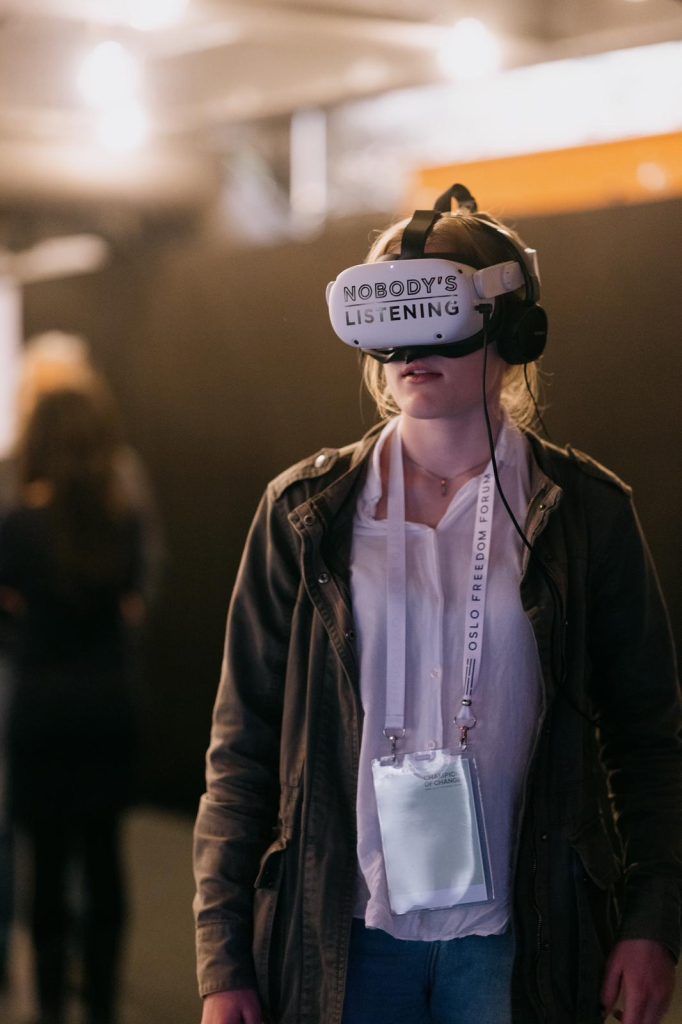
Impact of Virtual Reality
The exhibition features powerful artworks by survivors and community members, alongside an immersive VR experience recorded in Sinjar. This VR film, based on real-life testimonies, allows viewers to step into a survivor’s shoes, witnessing life before the attack, the harrowing events during the genocide, and the current situation.
At a USAID-sponsored event in the Iraqi parliament in 2020, the Deputy Speaker, moved by the film, supported a campaign leading to the Yazidi Survivors Law, providing reparations to victims of violence. In Luxembourg, the VR presentation led to formal genocide recognition and a visit by the Foreign Minister to meet survivors in Iraq.
The true value of the VR technology lies in its capacity to evoke empathy in the viewer by humanizing the victims’ stories. The use of the headset enables the viewer to experience locations which are otherwise inaccessible due to security concerns. The exhibition’s complementary traditional artworks can also establish profound human connections and create meanings that cannot be contained in a ten-minute VR presentation, but the great strength of Nobody’s Listening in terms of advocacy impact lies in its multimedia offering. The most significant impact is observed when users remove the VR headset, which creates a moment of heightened empathy for survivors or community members to actively engage in conversation and shift the focus from their personal ordeals to a constructive dialogue on collective action. When shown to the relevant legal committees and parliamentarians, the VR demonstrably leads to meaningful change, and there is no shortage of urgent action that could be instigated in this way.
In 2023 the United Kingdom Home Office and Mayor of London granted $50,000 to support a mobile version of Nobody’s Listening, in alignment with the UK Government’s PREVENT strategy to counter violent extremism within the UK. In conjunction with the Counter Extremism Project and Yazda, 900 students and educators were reached at five schools in London and Leicester. The VR experience has also been delivered to university students in Iraq, the US, the UK, Portugal and elsewhere.
The exhibition was displayed at the US Institute of Peace from October 2023 to January 2024 with tours and VR demonstrations delivered to senior US Government officials from the State Department, USAID and the FBI. The exhibition has welcomed over 70,000 visitors, while another 5,000 people have attended over 30 conferences and events where elements of Nobody’s Listening have been showcased.
International Recognition and Action
Despite some national governments recognizing the Yazidi genocide, formal UN recognition remains crucial. Such international acknowledgment is vital to preventing the genocide from fading into historical oblivion. A UN General Assembly or Security Council resolution is needed to ensure a consistent commitment to genocide prevention. The Coalition for Just Reparations (C4JR) urges the Iraqi Government to lead efforts at the UN to adopt a resolution designating 3 August as the International Day of Reflection for Victims and Survivors of the Genocide against Yazidis, Christians, Shabak, and Shia Turkmen by ISIL. Drawing parallels with the International Day of Reflection for Rwanda, established ten years after that country’s genocide, a similar program in Iraq could contribute significantly to preventing future atrocities and countering violent extremism. This would represent a proactive step towards educating future generations within existing budget structures, ensuring that the lessons learned from the Yazidi genocide are woven into the fabric of global consciousness.
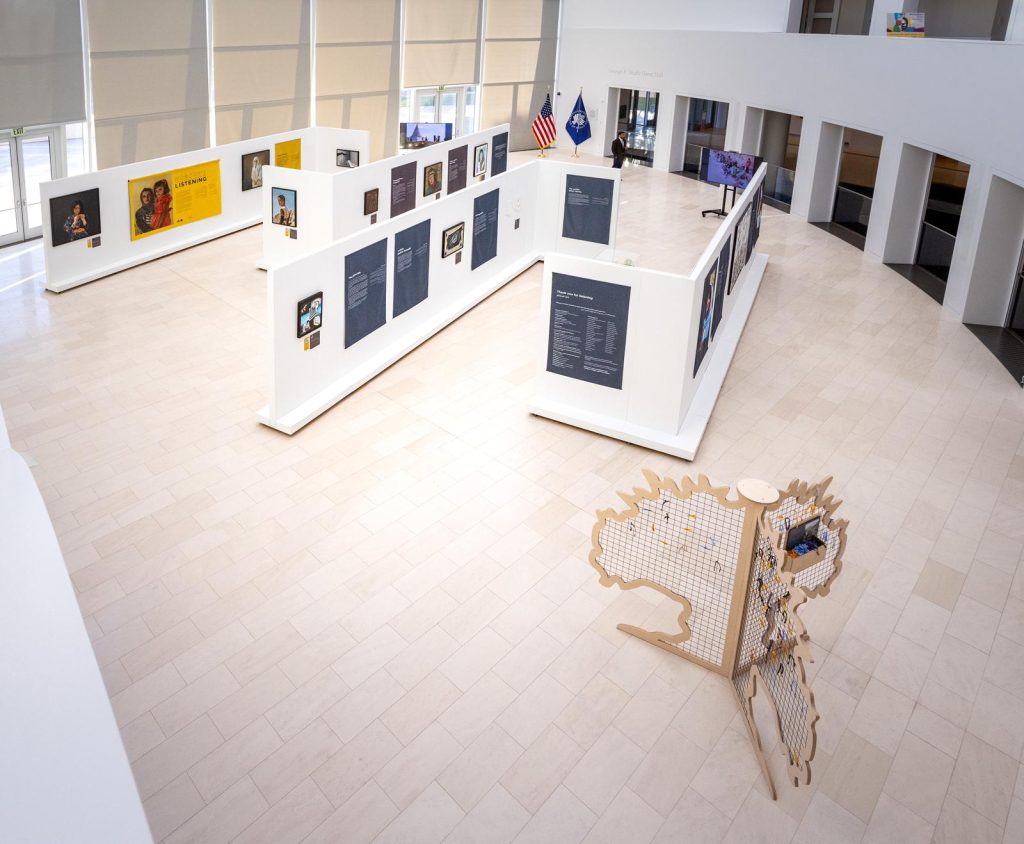
Future Steps
C4JR has already urged the Government of Iraq to lead efforts at the UN General Assembly to adopt a resolution that will designate 3 August as the International Day of Reflection for Victims and Survivors of the Genocide against Yazidis, Christians, Shabak, and Shia Turkmen by Da’esh (ISIL). Such a resolution would ideally incorporate an education outreach program which harnesses the power of technology in aid of atrocity prevention. A key part of such schemes is the effort to change people’s discriminatory perceptions. By way of example, the Nobody’s Listening VR experience was shown to 120 participants in five cities across Iraq as part of USAID-funded research led by Dr. Rozhen Mohammed-Amin. The study revealed that 70.8% of participants had their perceptions changed about Yazidi culture, and 92.2% emphasized the need for justice for the Yazidi genocide. It is imperative that the VR experience be shown more widely in Iraq to assist with efforts in atrocity prevention.
Educators are provided with a lesson plan and arts-based reflective exercises through which students process and share their learnings about Yazidi experiences and the dangers of extremism. Meanwhile, the need for international recognition of the genocide has become even more apparent upon presenting the VR in London to families affected by individuals who joined ISIL. Limited recognition may enable revisionist histories which downplay the severity of the atrocities. Only through an internationally acknowledged genocide status can we ensure a collective commitment to justice, accountability, and the prevention of such horrors in future.
Nobody’s Listening is uniquely positioned to engage the next generation of leaders in global dialogues about human rights, genocide prevention and extremism. The project’s innovative approach leverages trauma-informed expertise and virtual reality to foster empathy, dialogue, and pathways to action. This initiative brings together a strong network of human rights advocates, educators, designers, and survivors to lay the groundwork for a more just and peaceful global society. A clinical psychologist and a human rights lawyer have worked closely in the development of the VR experience and art exhibits to ensure that this project abides by the ‘do no harm’ principle and prioritizes the welfare of survivors, particularly those still in Iraq.
Conclusion
Credit is due to Yazidi groups, local NGOs, and international advocacy, whose efforts have led to significant successes for the Yazidi community. The establishment of UNITAD, the passing of the Yazidi Survivors’ Law, Nadia Murad’s Nobel Prize, and the Iraq and Syria Genocide Relief and Accountability Act are all milestones achieved through collective dedication. However, art and virtual reality remain underutilized assets in supplementing advocacy by survivors’ groups and civil society organizations. In advocating for international recognition and justice, Nobody’s Listening aims not only to acknowledge past atrocities but also to safeguard the Yazidi and other ethnoreligious communities in Iraq from the imminent threats they face today. The journey towards justice and prevention starts with a global acknowledgment that reverberates beyond borders — a commitment that, indeed, Somebody is Listening.
